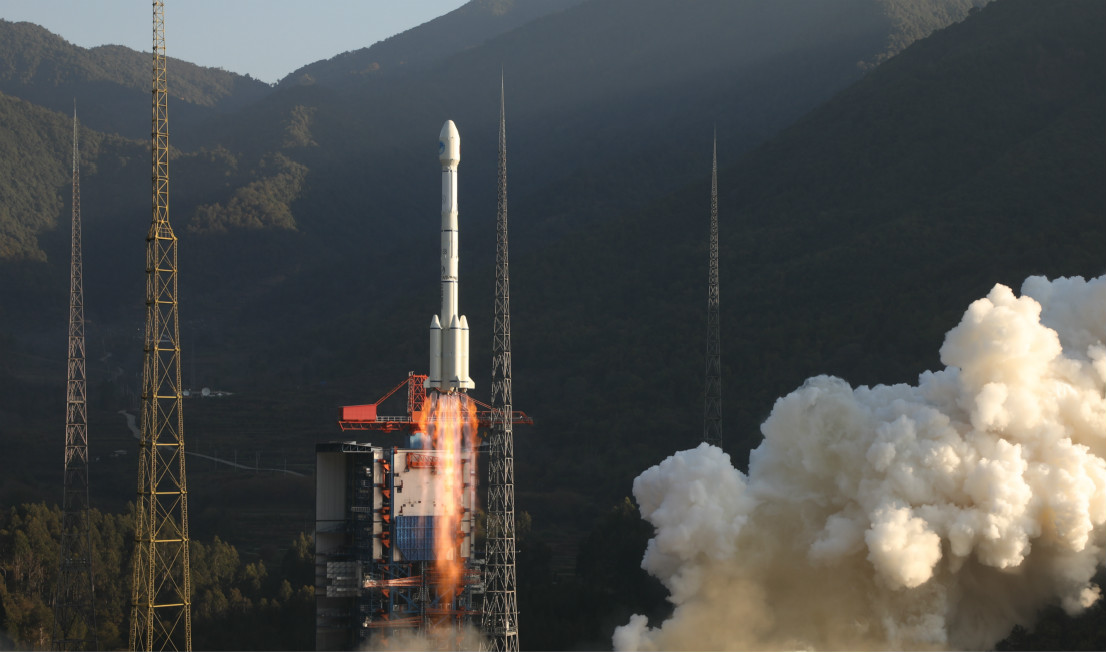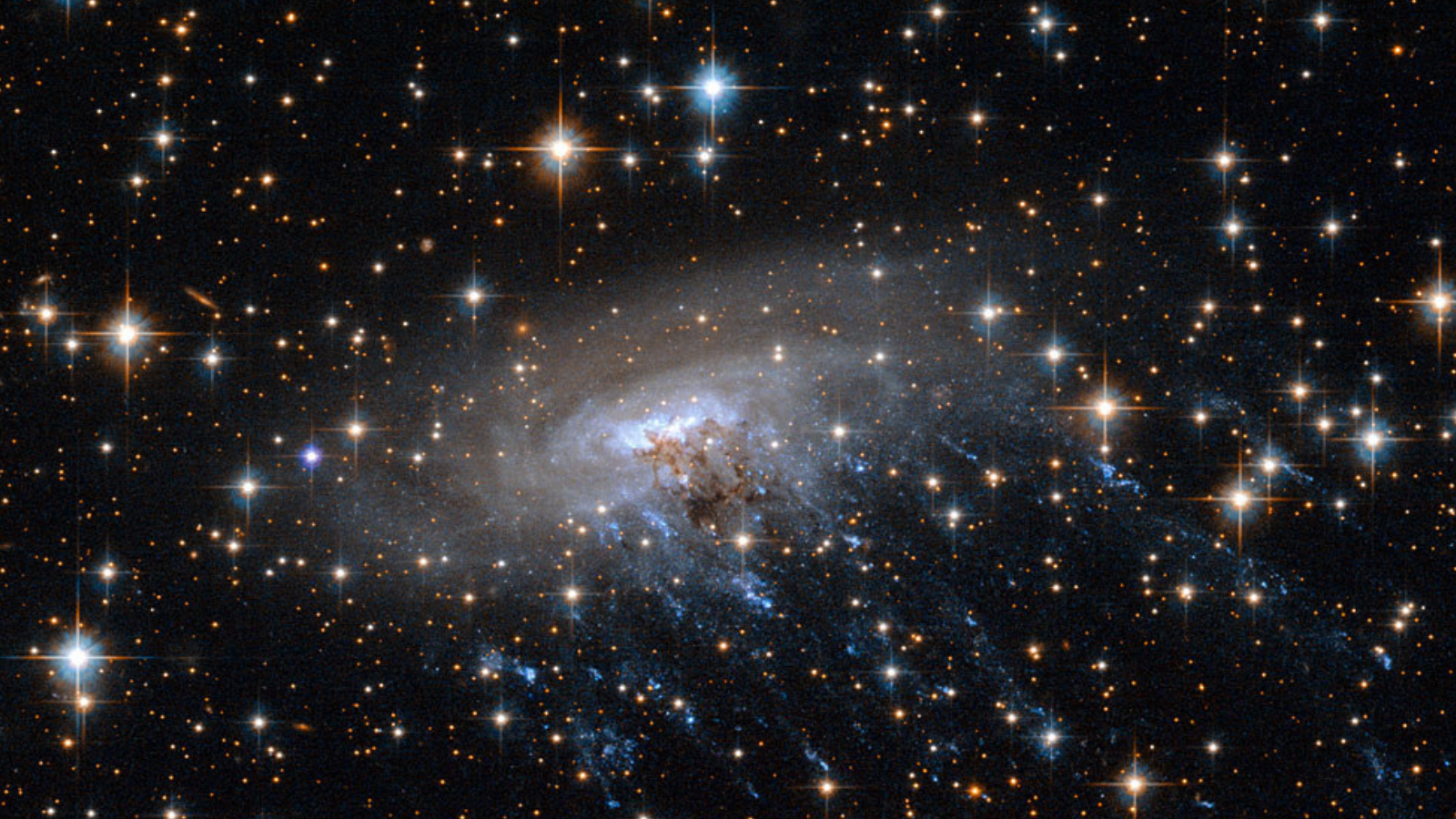Chinese Rocket Launches 2 Satellites (and Drops Debris on Settlement)
Breaking space news, the latest updates on rocket launches, skywatching events and more!
You are now subscribed
Your newsletter sign-up was successful
Want to add more newsletters?

Delivered daily
Daily Newsletter
Breaking space news, the latest updates on rocket launches, skywatching events and more!

Once a month
Watch This Space
Sign up to our monthly entertainment newsletter to keep up with all our coverage of the latest sci-fi and space movies, tv shows, games and books.

Once a week
Night Sky This Week
Discover this week's must-see night sky events, moon phases, and stunning astrophotos. Sign up for our skywatching newsletter and explore the universe with us!

Twice a month
Strange New Words
Space.com's Sci-Fi Reader's Club. Read a sci-fi short story every month and join a virtual community of fellow science fiction fans!
China's space agency launched two new navigation satellites into orbit Saturday (Nov. 23), a successful mission that also appeared to send booster segments crashing into a settlement back on Earth.
A Long March 3B rocket launched two Beidou navigation satellites for China's constellation from the Xichang Satellite Launching Center in the country's Sichuan Province at 8:55 a.m. Beijing Time Saturday (1255 GMT or 7:55 p.m. EST on Nov. 22). The rocket was equipped with a Yuanzheng-1 (Exploration-1) upper stage to help deliver the satellites to their final orbit.
While the Long March 3B rocket successfully delivered its satellite payload to orbit, boosters from the three-stage rocket appear to have crashed into a settlement downrange from the Xichang launch site, according to video and pictures shared on China's Wiebo social media service and reposted on Twitter. The images show show buildings on fire and damaged, apparently by debris from the Long March 3B, which can be strewn across the area.
Video: Watch China's Launch March 3B Rocket Launch
This is the aftermath downrange following a Chinese Long March 3B launch from Xichang early Saturday. And that yellow smoke is very toxic hypergolic propellant. Source: https://t.co/VEh5X8Ors0 pic.twitter.com/22IVIpyJOkNovember 23, 2019
While it may seem surprising, the scene is can be a familiar one for Chinese residents living downrange of the Xichang launch site.
China's first three launch sites were built deep inland, meaning that their boosters drop segments and stages over land, rather than out to sea, said Andrew Jones, a space journalist who specializes in China's space program and shared the Weibo images on Twitter. (Jones is also a contributing writer to Space.com).
Images from the booster crash site.ℹ:https://t.co/vY0CEN4CFY pic.twitter.com/u2eCbNDEgnNovember 23, 2019
"In particular, launches from Xichang, situated in Sichuan province in the southwest, seem to threaten populated areas downrange," Jones told Space.com in an email. "The launch profile of Long March 3B rockets, especially those with a payload of a pair of Beidou navigation satellites, has resulted in near misses and impacts on settlements."
Breaking space news, the latest updates on rocket launches, skywatching events and more!
China has been ramping up its space launches in recent years, so impacts near or in towns are occurring more often, he added. The two Beidou satellites launched Saturday are the 50th and 51st of their kind and part of the Beidou-3 system, according to China's state-run Xinhua news service. They serve as a global positioning satellite network for China, which aims to complete the current Beidou constellation by mid-2020, Jones said.
"The residents within the calculated drop zones for spent stages and boosters are warned and these areas are, apparently, evacuated — the fact that we often see amateur footage of boosters falling from the sky supports the notion that they are warned and expecting to see a falling spent rocket stage," he added.
According to Jones, the warnings sent to residents in a rocket drop zone include key safety instructions.
"The notice instructs people to go to a safe zone ahead of launch, and not to approach wreckage if they find it, due to the harmful effects of the residual propellant," he said.
- Watch China Simulate a Mars Landing for 2020 Mission to Red Planet (Video)
- Here's What China's Yutu 2 Rover Found on the Far Side of the Moon (Photos)
- This is the 1st Photo of China's Mars Explorer Launching in 2020
Email Tariq Malik at tmalik@space.com or follow him @tariqjmalik. Follow us on Twitter @Spacedotcom and on Facebook.


Tariq is the award-winning Editor-in-Chief of Space.com and joined the team in 2001. He covers human spaceflight, as well as skywatching and entertainment. He became Space.com's Editor-in-Chief in 2019. Before joining Space.com, Tariq was a staff reporter for The Los Angeles Times covering education and city beats in La Habra, Fullerton and Huntington Beach. He's a recipient of the 2022 Harry Kolcum Award for excellence in space reporting and the 2025 Space Pioneer Award from the National Space Society. He is an Eagle Scout and Space Camp alum with journalism degrees from the USC and NYU. You can find Tariq at Space.com and as the co-host to the This Week In Space podcast on the TWiT network. To see his latest project, you can follow Tariq on Twitter @tariqjmalik.

